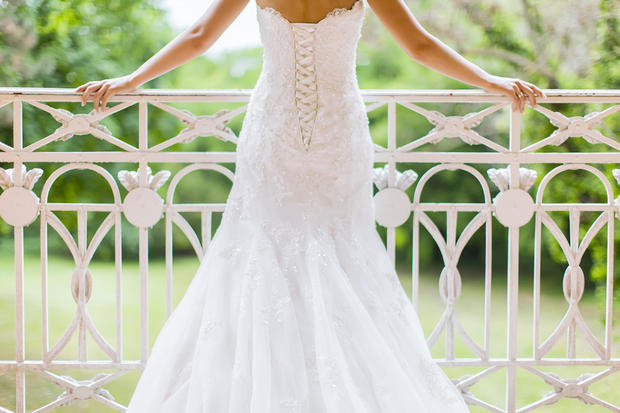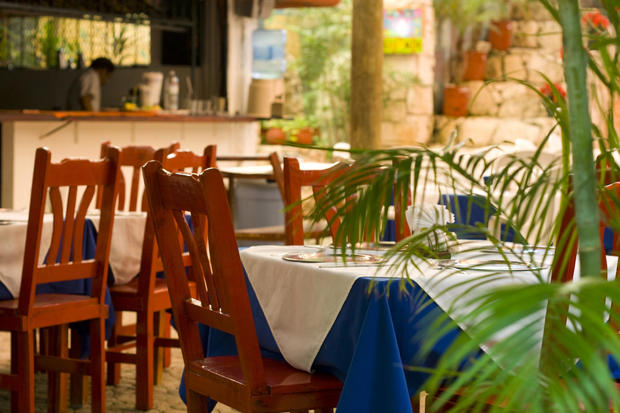Stop overspending on these 5 things
By Michael Koretzky/MoneyTalksNews
All too often, we buy things we think we're supposed to, and whenever there's an emotional component involved, our tendency to overspend is even greater. Think funerals, weddings and engagement rings, just for starters.
Here's a look at some things we routinely spend way too much on, and painless ways to cut back.
1. New cars
MoneyTalksNews founder Stacy Johnson has never, ever bought a new car. This is what he says:
"When it comes to buying cars, the vast majority of people I've known over the years approach the subject with no imagination at all. They simply do what the commercials tell them to and what their friends do: trudge down to the nearest dealer and buy a new car."
Instead, he's bought used cars for as little as $5,000. How? He avoids car lots. "A few years ago I bought a 1994 Cadillac Fleetwood Brougham from a 91-year-old lady," he recalls. He suggests asking around -- friends of friends seem to value a fair price and honesty. He also consults websites like Kelley Blue Book or Edmunds to establish a value. And finally, he gets the car inspected by a local mechanic. It might cost $50, but it can "save a ton of headaches and bills down the road," he says.
But if you're dead-set on a new car, consider more than the price. Also take into account resale value, fuel efficiency, repair record and the cost of insurance.
2. Weddings
It's madness: The average American wedding cost $31,213 in 2014, according to a survey by wedding website The Knot.
Many people set out to be frugal, but fail once the planning gets underway -- and the wedding industry gets its tentacles into them. So the first and single most important step to preventing overspending is to stop and think: What will make the occasion fun, memorable and meaningful for you and your guests -- versus what is just a costly tradition or expectation? Then have a conversation about where you could better spend the thousands of dollars you save. Travel? Downpayment on a house? Or -- if you're a parent who is ponying up the wedding costs for the couple -- retirement? Setting aside the option of eloping, there are any number of ways to save:
- Buy a second-hand wedding dress: Go to sites like Preownedweddingdresses,com to see the vast array of hardly worn finery.
- Limit the floral arrangements: Flowers are nice, but they can run up a huge bill, and then they die.
- Trim the guest list: Remember, the costs of food, decorations, drinks, table arrangements goes up as you add guests. So keep the wedding numbers down. You can always throw a huge barbecue for everyone you know later.
- DIY DJ: The Knot survey says a reception band will cost about $3,000, while a disc jockey will run almost $1,000. You can simply program your favorite music on an iPods and then hire someone (or even asking a friend) to push the right buttons at the right time. Search online for "DJing your wedding," and you'll find all kinds of detailed advice.
- Cut the cake. Specialty cakes can run into the hundreds of dollars. But really, how many weddings have you been to where everyone raved about the cake? Skip the specialty baker and buy your cake from your local grocery chain.
(Want more ideas? Check out: "15 Ways to Save on Your Dream Wedding.")
3. Diamond rings
You'll notice we didn't mention engagement and wedding rings in the weddings section. That's because jewelry is an overspending category unto itself -- and diamonds may be the most marked-up item on this list. But like funerals and weddings, buying diamonds is fraught with danger because it's yet another emotional purchase. If we try too hard to save money, we feel like we're being cheap.
But here's a secret: Diamond prices are often negotiable, even at major chains like Zales and Kay Jewelers. So while it's important to know the four C's of diamonds -- carat, color, clarity and cut -- the biggest lesson you can learn is to haggle. If your local jeweler or national retailer won't come down on price, they'll often be willing to upgrade the setting for a discount or even free.
By the way, you could decide to get an opal, a ruby -- or an agate -- in your engagement ring. (But if you go with expensive, first read: "8 Tips to Tackle the Terrifying Task of Buying Jewelry for Your Love.")
4. Food
So you don't cook much or well, and you don't have the time or space to grow your own fruits and vegetables. You can still save money on food. Here are three quick and easy suggestions:
- Eat smart when eating out. Of course, the unhealthiest food is often the cheapest. So if you're both healthy and price-conscious, skip the soup and salad -- they're not only expensive for what you get, they're not nearly as good for you as you think.
- Buy smart when eating in. If you don't like to cook, at least make meals with healthy ingredients that are easy to handle. (Here are 11 ideas, from beans to brown rice to frozen whole turkey.)
- Don't be bored/scared of cooking. You can save big and still eat well. If you can read, you can cook.
5. Funerals
According to the National Funeral Directors Association, the average cost of a funeral with viewing and burial was $7,181 in 2014, the last year for which statistics are available. With a vault (which is typically required by a cemetery) the median cost was $8,508. The cost does not take into account cemetery plot, monument or marker costs or miscellaneous cash-advance charges, such as for flowers or an obituary. That's a lot of cash.
The worst time to shop for a funeral is after a loved one dies, when grief can affect judgment. The single best way to avoid unnecessary costs is to be clear on your funeral wishes -- or better still, make arrangements for your funeral -- well in advance so your loved ones don't have to worry (which tends to lead to overspending). Either way, the costs can be far less than that average if you follow some tips:
- Know your rights as a consumer: The Federal Trade Commission regulates "funeral providers" under The FTC Funeral Rule. The requirements mandate that funeral homes provide a list of prices, and that customers are not required to buy all funeral-related products from the home that is coordinating the funeral.
- Shop around. Because the law allows you to BYOC (bring your own casket), shop around. Where? Try Costco. While the NFDA says a casket averages $2,395, you can get a casket from Costco for $950 -- delivery to the funeral home included. But there are many other discount options online.
- Get cremated. In 2015, 49 percent of deceased were cremated in the United States, compared with 45 percent who received traditional burials. (The other 6 percent were not accounted for.) That's up from a cremation rate of under 10 percent in 1980. The NFDA puts the average cost of a funeral with viewing and cremation at just over $6,000. But in reality, opting for cremation makes it possible to avoid many costs -- including embalming, viewing and burial -- as Everplans, an online service that helps people make estate and end-of-life arrangements, explains here. Moreover, the site points out, cremation makes it easy to hold the memorial at a later date, in a way that is affordable and convenient for family to come together.
(For more, check out: "How to Manage the Cost of a Funeral.")




